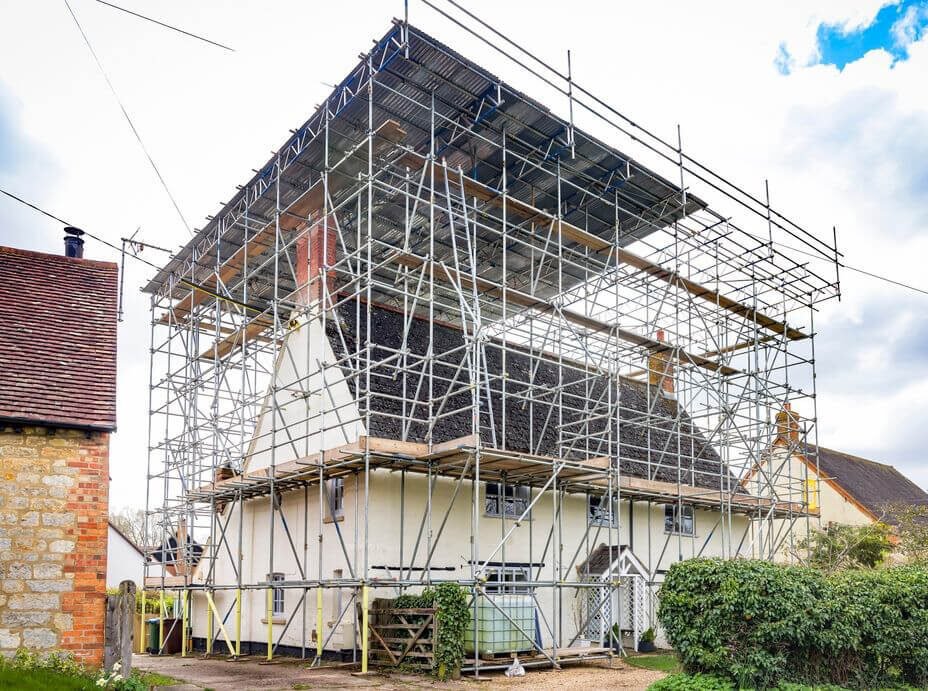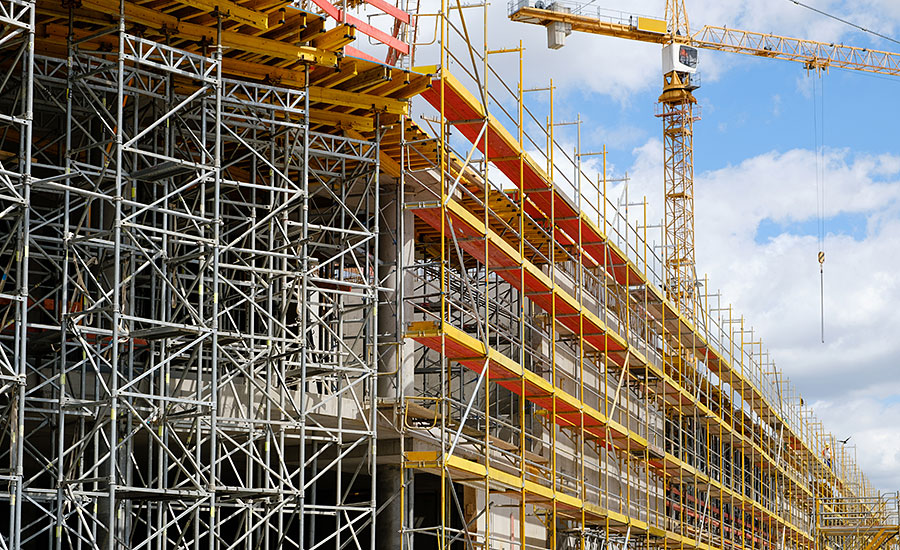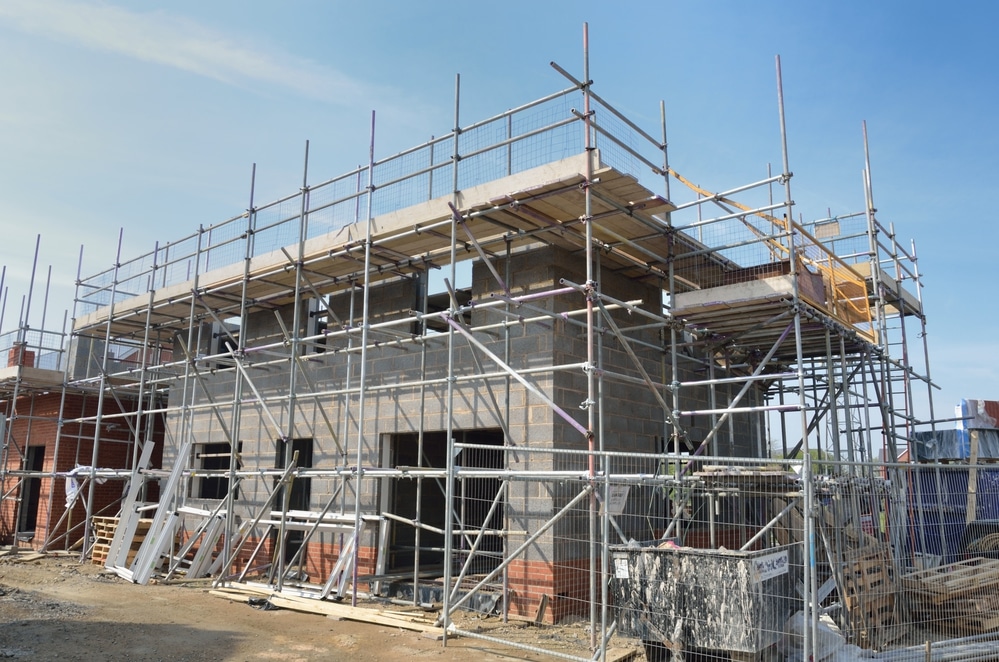Safe and Durable Scaffolding Guildford for Your Upcoming Construction Work
Safe and Durable Scaffolding Guildford for Your Upcoming Construction Work
Blog Article
Checking Out the Various Kinds of Scaffolding Used in Building Tasks
The building and construction industry counts heavily on numerous kinds of scaffolding to meet details project needs, each offering distinctive benefits and applications. Traditional frame scaffolding provides a durable structure for basic jobs, while suspended scaffolding is important for service skyscraper structures. Other options, such as system and rolling scaffolding, satisfy performance and wheelchair, specifically. The cantilever variant proves indispensable in urban settings where space is constrained. Recognizing the subtleties of these scaffolding types is crucial for maximizing security and efficiency on building websites, motivating a closer assessment of their special attributes and applications.

Typical Framework Scaffolding
Conventional framework scaffolding is one of one of the most commonly made use of techniques in the building market as a result of its effectiveness and adaptability. This system includes horizontal and vertical structures that are put together to create a stable platform for products and employees. The main components include vertical articles, straight ledgers, and diagonal dental braces, which with each other offer a strong framework that can sustain considerable lots.
Among the key advantages of typical structure scaffolding is its flexibility to numerous building and construction tasks, varying from property structures to big business structures. The modular design permits for simple assembly and disassembly, making it reliable for both short-term and long-term projects. Additionally, the system can be tailored in elevation and width, accommodating different structure designs and site conditions.
Security is extremely important in scaffolding applications, and traditional framework systems are furnished with guardrails and toe boards to avoid falls and guarantee worker defense. In addition, regular inspections and adherence to safety laws are vital in maintaining the honesty of the scaffold. Generally, conventional structure scaffolding stays an essential choice in the building and construction market, offering a trusted system for labor and improving overall job effectiveness

Suspended Scaffolding
Suspended scaffolding supplies a distinct remedy for building projects that require access to elevated surface areas, especially in scenarios where typical frame scaffolding may be unwise. This kind of scaffolding is normally suspended from the roof or top levels of a framework, making use of a system of ropes, systems, and pulleys to produce a functioning room that can be readjusted to different elevations.
Among the main advantages of put on hold scaffolding is its versatility. It can be conveniently rearranged or lowered to accommodate modifications in building requirements, making it perfect for jobs such as home window installment, façade work, and upkeep on skyscraper structures. In addition, the marginal impact of suspended scaffolding permits for much better usage of ground area in urban settings, where space is commonly restricted.
Security is a crucial consideration in the use of suspended scaffolding. On the whole, suspended scaffolding supplies a efficient and reliable remedy for accessing hard-to-reach areas in various building and construction scenarios, improving both productivity and safety and security on website.
System Scaffolding
System scaffolding, usually considered a modern-day remedy in the scaffolding market, includes pre-engineered parts that can be promptly constructed and adapted for numerous building projects. Scaffolding. This type of scaffolding is identified by its modular layout, which permits versatility and performance on work websites, fitting different elevations and structural needs
Usually made from high-strength steel or light weight aluminum, system scaffolding offers improved durability and stability. The parts include vertical articles, straight ledgers, and diagonal braces, which interconnect securely, ensuring a robust structure. The layout frequently includes standard fittings, simplifying setting pop over to this web-site up and disassembly processes, thus lowering labor time and expenses.

Rolling Scaffolding
Moving scaffolding is a functional option to typical set scaffolding, created for flexibility and convenience of usage on building and construction websites. This sort of scaffolding includes a system sustained by frameworks with wheels, enabling workers to easily relocate it as required. The flexibility feature considerably enhances efficiency, as it lessens downtime associated with dismantling and assembling repaired scaffolding.
Generally created from light-weight products such as light weight aluminum or steel, rolling scaffolding offers a durable yet portable remedy for tasks requiring frequent repositioning - Scaffolding. It is specifically useful in tasks such as paint, drywall setup, and electric work, where accessibility to various elevations and places is essential
Security is paramount in rolling scaffolding design, with features such as securing wheels to protect against unintended movement when in operation, and guardrails to protect workers from falls. In addition, many models are adjustable in elevation, fitting various project demands.
Cantilever Scaffolding

The style of cantilever scaffolding typically involves making use of arms or brackets anchored to a structure or framework, making it possible for the system to prolong outward safely. Security is extremely important; thus, these scaffolds should be engineered scaffolding for sale to hold up against various tons and ecological problems. Routine evaluation and maintenance are vital to ensure structural honesty and employee security.
Cantilever scaffolding is preferred for its adaptability and effective usage of area, making it a popular choice in city settings where area restrictions are typical. It assists in easier accessibility to high elevations, ultimately adding to the total performance of building projects. Just like all scaffolding types, appropriate training and adherence to safety and security criteria are vital for workers using cantilever scaffolding.
Conclusion
To conclude, the diverse kinds of scaffolding utilized in building tasks each offer unique functions customized to specific website demands. Standard framework scaffolding supplies security, while suspended scaffolding provides flexibility for raised tasks. System scaffolding assists in fast assembly, and rolling scaffolding boosts movement for differing workplace. Cantilever scaffolding successfully attends to obstacles in city settings. Understanding these scaffolding linked here kinds is essential for maximizing safety and productivity in building, inevitably adding to the effective conclusion of tasks.
Typical framework scaffolding provides a strong foundation for basic tasks, while put on hold scaffolding is vital for work on skyscraper structures.Moving scaffolding is a functional choice to conventional fixed scaffolding, made for wheelchair and simplicity of use on construction sites. As with all scaffolding kinds, proper training and adherence to safety and security standards are vital for workers making use of cantilever scaffolding.
Typical frame scaffolding provides security, while suspended scaffolding provides flexibility for raised jobs. System scaffolding assists in quick setting up, and rolling scaffolding enhances wheelchair for varying work environments.
Report this page